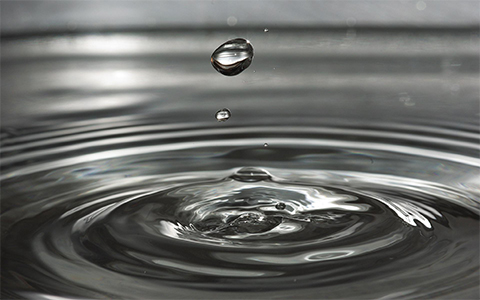
Cleaning Water
Water scarcity is an emerging threat for many countries and regions around the world. Water scarcity also called “water stress” does already impact regions in the form in difficulties to access clean water for human consumption and agriculture. With a growing population world wide, the need for food and clean water will get even more important. We believe that we can solve some of these problems with algae, resulting in clean water for all.
You can read more about the the water scarcity and how it has changed in the Water Scarcity Atlas (https://waterscarcityatlas.org).
Can’t we just produce water?
We live on the commonly known “water planet”, with lots of water in our oceans. There is a problem though, and that is that more than 99% of all Earth’s water is too salt for us or plants to use. Oceans have around 3% salt in the surface waters. Less than 0.5% of all our fresh water is found in places such as rivers and lakes. A lot of it is also stored in ice, such as in Antarctica.
With the vast amounts of water provided by the oceans, we can perform a process called desalnation to separate the salts and the water. There are a ffew ways to do this, the two most common solutions are through boiling the water and with filtration. The problem with these two methods are that they require huge amounts of energy (electricity) to perform the actual separation of salt and water. In addition to this, the separation results in a hypersaline (very salt) solution called “brine”. This brine is today commonly just pushed out into the ocean again, where it sinks to the bottom due to the difference in density compared to the less saline seawater.
We here at Applied Algae want to attack these problems with our green friends, algae!
Why algae?
Using salt-tolerant (also called “halophyte”) algae, we can solve many of the problems today’s desalnation techniques suffers from. The growth of algae does not need as much energy as traditional methods. It does not produce the same type of brine, this because the algae utilizes the salts to grow and fixates them as algal biomass. This algal biomass can then be used as fertilizer or other refined products. This way of separating the salts from ocean water is commonly called “bio-desalnation”.
We have conducted quite a lot of research regarding bio-desalnation, how and at what rate different algae strains fixates salts in ocean water. We will release our findings soon on our research portal (https://appliedalgae.io/portal, the website is currently being built and might not be accessible at the time of publish of this page).
To summarize
- Water scarcity is an up and coming threat to many countries around the world.
- The current desalnation technologies faces some challenges regarding sustainability.
- Algae could potentially be used as a more sustainable way to produce freshwater, through bio-desalnation.
- Algae is a more sustainable way of separating salt from saline water.
- Scalable solutions to achieve bio-desalnation at scale.
- Algal biomass used for refined products.